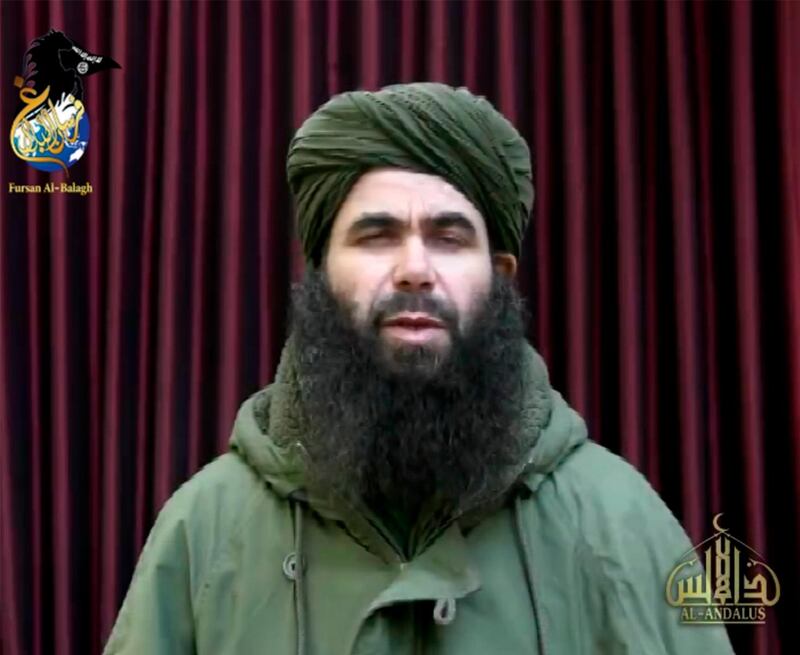French forces have killed the leader of Al Qaeda in the Islamic Maghreb, Algerian Abdelmalek Droukdel, in northern Mali, France's defence minister said.
Droukdel was killed on Thursday near the Algerian border, where the group has bases from which it has carried out attacks and abductions of Westerners in the sub-Saharan Sahel zone, Defence Minister Florence Parly said Friday.
"Many close associates" of Droukdel - who commanded several affiliate jihadist groups across the lawless region - were also "neutralised", she added.
Al Qaeda in the Islamic Maghreb (AQIM) emerged from a group started in the late 1990s by radical Algerian Islamists, who in 2007 pledged allegiance to Osama Bin Laden's Al Qaeda network.
The group has claimed responsibility for a string of attacks on troops and civilians across the Sahel, including a 2016 attack on an upmarket hotel and restaurant in Burkina Faso, which killed 30 people, mainly Westerners.
France has deployed more than 5,000 troops to combat jihadist groups in the region - a largely lawless expanse stretching over Burkina Faso, Chad, Mali, Mauritania and Niger, where drugs and arms flow through porous borders.
Northern Mali is the site of frequent clashes between rival armed groups, as well as a haven for jihadist activity.
In 2012, key cities fell under the control of jihadist groups linked to Al Qaeda, who exploited an ethnic Tuareg-led rebel uprising, leading to a French-led military intervention.
According to the UN, Droukdel was an explosives expert and manufactured devices that killed hundreds of civilians in attacks on public places.
He was sentenced to death in Algeria in 2013 for his involvement in the bombings of a government building and offices of the UN's refugee committee in Algiers that killed 26 people and wounded 177.
France also claimed on Friday to have captured a leader of ISIS in the Greater Sahara (EIGS) group, which carries out frequent attacks over Niger's western borders.
"On May 19, French forces captured Mohamed el Mrabat, veteran jihadist in the Sahel region and an important cadre in EIGS", Parly said on Twitter.
Operations against EIGS "the other great terrorist threat in the region" are continuing, said Parly.
Mali is struggling to contain an Islamist insurgency that erupted in 2012 and has claimed thousands of military and civilian lives since.
Despite the presence of thousands of French and UN troops, the conflict has engulfed the centre of the country and spread to neighbouring Burkina Faso and Niger.
A source told AFP that some 500 jihadist fighters had been killed or captured by French troops in the region in recent months, among them several leading figures including commanders and recruiters.
Droukdel's death is a symbolic coup for the French, a military source said.
He had remained a threat in the region, capable of financing jihadist movements, even though his leadership had been contested, the source added.
His death, and that of other Al Qaeda figures, could leave the group disorganised in the Sahel.
Born in 1971 in a poor neighbourhood of Algiers, Droukdel took part in the founding in Algeria of the Salafist Group for Preaching and Combat (GSPC).
Abdelaziz Bouteflika, elected Algerian president in 1999, managed to convince most of the armed groups in the country to lay down their weapons.
The GSPC, however, refused to do so and Droukdel decided to approach Al Qaeda.







